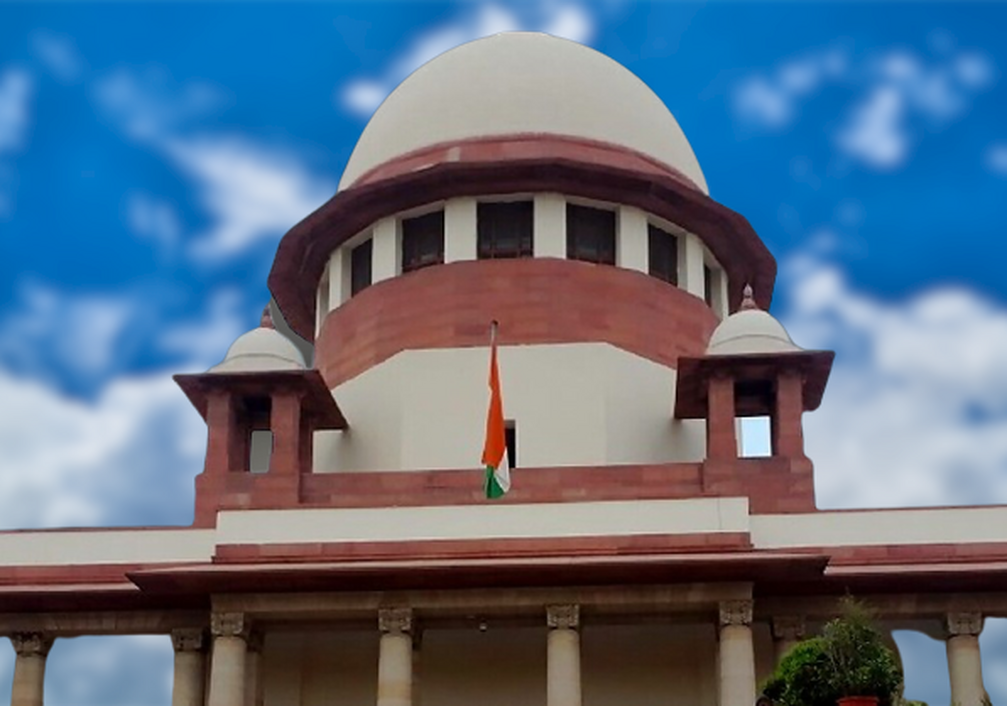In CRIMINAL APPEAL No.867 of 2022- SC directs Madras HC to supply copy of enquiry report to former TN Minister in alleged case of corruption, says prosecution by State ought to be consistent with right to fair trial enshrined under Article 21 of Constitution Justices N.V.Ramana, Krishna Murari & Hima Kohli [20-05-2022]

Read Judgment: S.P. VELUMANI v. ARAPPOR IYAKKAM AND ORS
Tulip Kanth
New Delhi, May 23, 2022: In a case involving allegations of corruption against a former Cabinet Minister of Tamil Nadu, the Supreme Court has condemned the act of the Madras High Court of ordering an enquiry, obtaining a report without furnishing a copy thereof to the appellant and unceremoniously closing the writ petition.
Saying that the State cannot blow hot and cold at the same time, the Larger Bench of Chief Justice N.V.Ramana, Justice Krishna Murari and Justice Hima Kohli was of the opinion that when the State Government changed its stand, the High Court neither provided the appellant an opportunity to defend himself, nor sought a reasoned justification from the State for having turned turtle.
The factual scenario of this case was such that the appellant was a Cabinet Minister in the State of Tamil Nadu from 2014 and a complaint as well as a criminal petition was filed against him over the allegations that that while he was serving as a Minister, he allegedly misused his powers to influence the tender process and ensured that tenders were awarded to his close aides.When the proceedings begun, the High Court directed the Director of Vigilance and Anti-Corruption to produce an enquiry report in a sealed cover before the next date of hearing.
In 2021, the State registered an FIR against 17 accused persons including the appellant under Section 120B r/w Sections 420 and 409 of the IPC and Section 13(2) r/w Sections 13(1)(c) and 13(1)(d) of the Prevention of Corruption Act, 1988 r/w Section 109 of the IPC. When the appellant filed an application seeking a copy of the preliminary Enquiry Report and associated documents submitted by Ms. R. Ponni, Superintendent of Police, Directorate of Vigilance and Anti-Corruption as well as the decision taken by the Vigilance Commission, the High Court dismissed this application. Aggrieved by the aforesaid order, the appellant filed the present appeal by way of Special Leave.
The Larger Bench held that the approach taken by the High Court couldnot be countenanced in law as it committed a patent error in not taking the matter to its logical conclusion and once the enquiry was completed, the High Court failed to even peruse the said report. Rather, the High Court left the decision completely in the hands of the State Government.
According to the Top Court, when the State had not pleaded any specific privilege which barred disclosure of material utilized in the earlier preliminary investigation, there was no good reason for the High Court to have permitted the report to have remained shrouded in a sealed cover.
Holding that the mandate of Section 207 of CrPC cannot be read as a provision etched in stone to cause serious violation of the rights of the appellant-accused as well as to the principles of natural justice, the Bench said, “Viewed from a different angle, it must be emphasized that prosecution by the State ought to be carried out in a manner consistent with the right to fair trial, as enshrined under Article 21 of the Constitution.” Thus, the Apex Court directed the High Court to supply a copy of the enquiry report along with the other documents to the appellant herein and also asked the High Court to dispose of the cases on their own merit, uninfluenced by any observation made herein.
Sign up for our weekly newsletter to stay up to date on our product, events featured blog, special offer and all of the exciting things that take place here at Legitquest.




Add a Comment